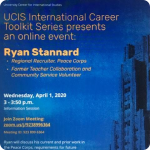Past Events

- Global Studies Center and World History Center
- 4130 Posvar Hall
Artists will demonstrate how to use found and recycled materials to make speculative and renderings of landscapes that are spatially aware while also being aesthetically pleasing and imaginative.
*Participation in the full series in encourages, but not required*
Register at forms.gle/zZyEsmYQkPDgjxt56

- Consortium for Educational Resources on Islamic Studies
- Posvar Hall, University of Pittsburgh
Papers are welcome from students - both undergraduate and graduate – from all disciplines on topics including (but not limited to) politics, culture, society, policy, religion, and their impact on the lived experience of Muslims and their multifaceted interactions. This symposium looks to shed light on various expressions of Islamic and Muslim narratives and experiences in a global, historical or contemporary context.

- Jodi Dean
- 4130 Wesley W. Posvar Hall
There has been a resurgence of the Left since the 2008 Great Recession. A class-based politics, dormant for so long, has finally returned to mainstream political discourse. But what is this Left? What are its goals, possibilities and limitations? How will it organize itself for the politics of the 21st century? This live interview with Jodi Dean will discuss her book trilogy that provokes us to rethink and even revisit the Left with a renewed vision of communism, a efficacy of the political party, and the ethics and spirit of comradeship.
This event is part of the Socialism: Past, Present, and Future Pop-Up Course.

- Ryan Stannard
- Online Web Chat - Zoom Application
UCIS International Career Toolkit Series presents an online event:
Ryan Stannard - Regional Recruiter, Peace Corps
Former Teacher Collaboration and Community Service Volunteer
Join in via Zoom:
Wednesday, April 1st, 2020
3:00-3:50pm, Information Session
Join Zoom Meeting:https://zoom.us/j/9238996364
Meeting ID: 923 899 6364
We are opening up the UCIS Professional Development Class to offer additional students to take part online and learn from Ryan. Ryan will discuss his current and prior work in the Peace Corps, requirements for future employees, and key strengths and skills he seeks in Peace Corps applicants. He'll also answer questions.
Please sign up online at:https://signup.com/go/cTtOnmN
Questions?
Angela Illigami17@pitt.edu

- Online-Zoom
Due to economic development and globalization, cities continue to grow with predictions that 70 of the
world’s population will live in urban areas by the year 2050. This course, then, will view cities as hubs
where patterns, connections, discussions, and the processes shape such issues as social justice, economic
development, technology, migration, the environment among others. By examining cities as a lens, this
sequence of weekend courses encourages students to examine cities as a system for discussing social
processes being built and rebuilt. With an interdisciplinary focus, the course invites experts from the
University of Pittsburgh, Carnegie Mellon, and relevant fields more broadly.
This iteration of the course will explore such topics as: the influence of multinational corporations on
cities; the rise of privacy issues in relation to adoption of technology within cities and homes; the
replacement of human labor and access to employment; the role of technology on urban planning,
among others.
One-credit for PITT students / 3 units

- Dr. K Lieder
- 4217 Posvar Hall
Dr. K. Frances Lieder, the UCIS Visiting Professor of Contemporary Global Issues, will lead this Global Studies Center three-part series. Students will learn the how-to’s of research in the social sciences and humanities, formulate and apply concepts to their own research, and engage with junior faculty about their research experiences.
The series is open to all undergraduate students -- and a must for students pursuing BPHIL, honor thesis and students with plans to pursue graduate study.
Link to registration: https://forms.gle/NCVjX1GSNofDHKza7

- Veronica Dristas & Korryn Mozisek
- Online Format
Due to economic development and globalization, cities continue to grow with predictions that 70 of the world’s population will live in urban areas by the year 2050. This course, then, will view cities as hubs where patterns, connections, discussions, and the processes shape such issues as social justice, economic development, technology, migration, the environment among others. By examining cities as a lens, this sequence of weekend courses encourages students to examine cities as a system for discussing social processes being built and rebuilt. With an interdisciplinary focus, the course invites experts from the University of Pittsburgh, Carnegie Mellon, and relevant fields more broadly.

- Jude Blanchette
- Zoom (Register online)
Ever since Deng Xiaoping effectively de-radicalized China in the 1980s, debates have swirled around which path China would follow. Would it democratize? Would it embrace capitalism? Would the Communist Party's rule be able to withstand globalization and the internet? One thing few seriously considered: Mao Zedong would make a political comeback. This live interview with Jude Blanchette will discuss the return of the populist enthusiasm for the Great Helmsman's policies, and what it means for the present and future of Chinese communism.
This event is part of the Socialism: Past, Present, and Future Pop-Up Course.
Register to attend here: https://pitt.zoom.us/meeting/register/upQlf-yqpjgqOn6gS4WXNDTFXM_H0kVbOg

- International Place-Based University Network
- Various
DUE TO CONCERNS SURROUNDING COVID-19, NEWCASTLE UNIVERSITY AND THE UNIVERSITY OF PITTSBURGH HAVE DECIDED TO POSTPONE THIS EVENT. AN ANNOUNCEMENT OF THE NEW DATES WILL BE MADE WHEN AVAILABLE.
An Initiative of the International Place-Based University Network
International Place-Based University Network: Academically Based, Globally Minded Community Engagement
Post-industrial cities are crucibles of reinvention and innovation. Those that have successfully navigated the sunsetting of industrial production have creatively reoriented to intellectual technology, advanced manufacturing, business services, and life science innovations. And yet, the challenges that followed industrial decline—loss of population, unemployment, and destructive urban redevelopment strategies—continue to reverberate.
As the founding members of the International Place-Based University Network, Newcastle University and the University of Pittsburgh are hosting this conference. The goal is to share best practices for community and civic engagement as well as to explore potential international collaborations for academically based community engagement.
Tuesday, March 24, 2020
University Club | Ballroom A, First Floor | University of Pittsburgh
Wednesday, March 25, 2020
Community Engagement Center of Homewood
For the agenda or to register, go to
pi.tt/InPlace2020

- Dr. Michael Goodhart
- 3415 Posvar Hall
Are you interested in turning your academic interests into research projects? Dr. Michael Goodhart, Professor of Political Science and Director of Global Studies Center, will lead this session with interested students on the how-to’s of research in the social sciences and humanities, formulate and apply concepts to their own research, and engage with junior faculty about their research experiences.
Registration:https://docs.google.com/forms/d/e/1FAIpQLSfFh10mYs7DyyeHqDtzcvDSqX7hHRfh...

- Global Studies Student Ambassadors
- Global Hub

- José-Alain Sahel, Chair of the Department of Ophthalmology at the University of Pittsburgh School of Medicine
- TBA
Visit https://www.ucis.pitt.edu/global/humanizing-global-0 for the workshop reading.

- José-Alain Sahel, Chair of the Department of Ophthalmology at the University of Pittsburgh School of Medicine
- 501 Cathedral of Learning
José-Alain Sahel is the chair of the Department of Ophthalmology at the University of Pittsburgh School of Medicine, director of the UPMC Eye Center, and the Eye and Ear Foundation Chair of Ophthalmology. Dr. Sahel is known worldwide for his expertise in vision restoration techniques. He has developed several interventions— including stem cell implantation, gene therapy, innovative pharmacologic approaches, and the artificial retina—for retinitis pigmentosa, age-related macular degeneration, vascular eye disease, and other vision impairments that currently are untreatable. Over the past decade he has led pioneering efforts in optogenetic vision restoration, a technique in which cells in the retina are genetically modified to express light sensitive proteins. This therapeutic technique has the potential to help patients who are blind or visually impaired as a result of a genetic defect. Sahel, who was born in Algeria, studied medicine at Strasbourg University and in Lariboisière, Saint-Louis. He received his medical degree with a Medal of the Faculty of Paris and obtained his specialty certification in ophthalmology. He completed a residency in neurology and neurosurgery at the Louis Pasteur University Hospital in Strasbourg. He also was a research fellow at the Massachusetts Eye and Ear Infirmary and a visiting scholar in the Department of Molecular and Cellular Biology at Harvard University. Dr. Sahel is the founder and director of the Vision Institute in Paris and currently a professor at the Sorbonne’s medical school Université Pierre-et-Marie-Curie.

- Dr. Emmanuel Jean-François, Penn State
- Humanities Center, 602 Cethedral of Learning
Speaker, Dr. Emmanuel Jean-François, Penn State
This talk takes islands and seas as its focus, outlining an approach to geographies that can be considered globally in any context. It explores the case of the Indian Ocean but relates to broader themes such as colonialism/postcolonialism, racism, and global movements and migration.
As Dr. Jean-François puts in in his abstract: "Using the New Thalassology and Kamau Brathwaite’s notion of “tidalectics” as a relational framework for exploring multipolar connections, minor solidarities, and long-ignored forms of cosmopolitanism, this presentation discusses how the transcolonial and transoceanic imaginaries of Francophone Indian Ocean writers disrupt the colonial taxonomies that have construed islands as spaces of colonial difference, isolation, and vulnerability. While their “de-insularization” of islands and their rewriting of geographies, temporalities, and epistemologies bridge the gap between landmasses and seas, oceans and archipelagoes, it also configures fluctuating horizons and symbolic spaces of relation from which minority, racialized, and subaltern subjects across multiple sites can interact in fruitful and lateral ways."

- Pitt Global Hub
As students consider what they will register for in the fall, advisors and students from the University Center for International Studies will be available throughout the week to answer questions about international studies certificates, study abroad, and resources to support research and career development.
- ‹ previous
- 46 of 60
- next ›
